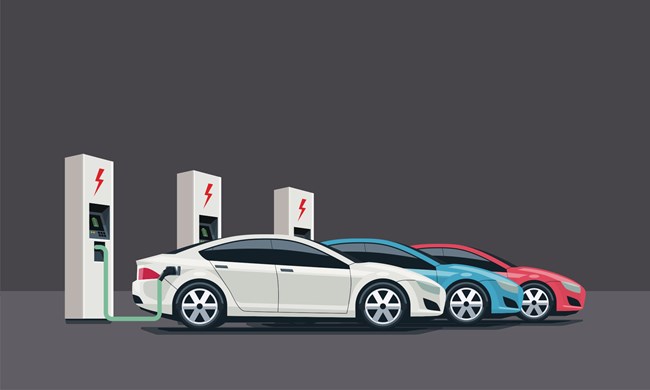
The start point for the best source of fleet information |
Salary sacrifice promotion among EV incentives proposed by CDRT report
Date: 11 November 2021 | Author: Sean Keywood

Wider promotion of salary sacrifice schemes could help with EV take-up in the UK, particularly among employees of small businesses.
That's among the recommendations in a report published by the Green Finance Institute's Coalition for the Decarbonisation of Road Transport (CDRT).
Although the report, titled 'Road to Zero: unlocking public and private capital to decarbonise road transport in the UK', focuses mainly on incentives for the consumer market and public charging, noting that incentives such as low company car tax rates have already done a good job incentivising EV adoption in the fleet market, it does identify salary sacrifice as a possible area for growth.
The report, which warns that widespread financial incentives are needed to ensure the UK is ready to meet the governments 2030 end-date for petrol and diesel car sales, explains: "The application of reduced rates of BIK tax to salary sacrifice is helping employees who do not usually qualify for a company car to access EVs, as evidenced by strong recent market growth reported by scheme providers.
"Such schemes should be more widely promoted and thought given to how they could be accessed by smaller businesses with a lower administrative burden."
The report also adds to previous calls for clarity about the future of EV tax rates, stating: "Fiscal measures including reduced rates of BIK tax for EV company car drivers and VED have helped stimulate demand from business drivers through offering financial incentives to offset the risks and the cost of switching to an EV.
"As the EV market remains at an early stage of development, clarity on how such incentives might continue to be targeted through to 2030 would enable the leasing sector, for example, to provide full and accurate pricing on contracts beyond 2021, supporting demand for new finance agreements. These new business registrations will remain important to supply the used EV market for consumers.
"Clarity on how the government's income from fuel duty might be replaced with new income streams is also important as it would give consumers and businesses confidence to transition ahead of 2030."
Other areas of possible fleet interest in the report include regarding charger installation, since it notes that, although there is little need for further financial incentives in the fleet market for the purchase and leasing of EVs themselves, "Businesses and vehicle rental companies do require finance solutions for more costly charging infrastructure."
Among its proposals in this area is for property linked finance, which would enable building owners to access 100% upfront funding to install EV chargers through finance attached to the property, with the responsibility for repayments then remains with the property and passing on to subsequent owners who would also benefit from the charger.
The report states: "Property linked finance overcomes the cost barrier to installing charging infrastructure for consumers and businesses and can unlock demand, particularly for property owners with limited debt capacity.
"The ability to transfer obligations to subsequent property owners and finance terms of 20+ years can improve the investment case where payback time is long."
Among the wider initiatives proposed by the report are standardised battery health certificates, for increased confidence among used EV buyers, bundled vehicle and infrastructure financing products, utilisation-based loans for charger installation, and local authority toolkits to speed up installation.
Commenting with the release of the report, CDRT programme director Lauren Pamma said: "Our inaugural report has identified a number of barriers to EV adoption by consumers, and the roll out of public charging infrastructure which, if not overcome, risk disrupting the orderly transition needed to move the UK towards zero emission motoring.
"Our solutions have been co-designed with members to unlock those barriers and accelerate the pace of change."










